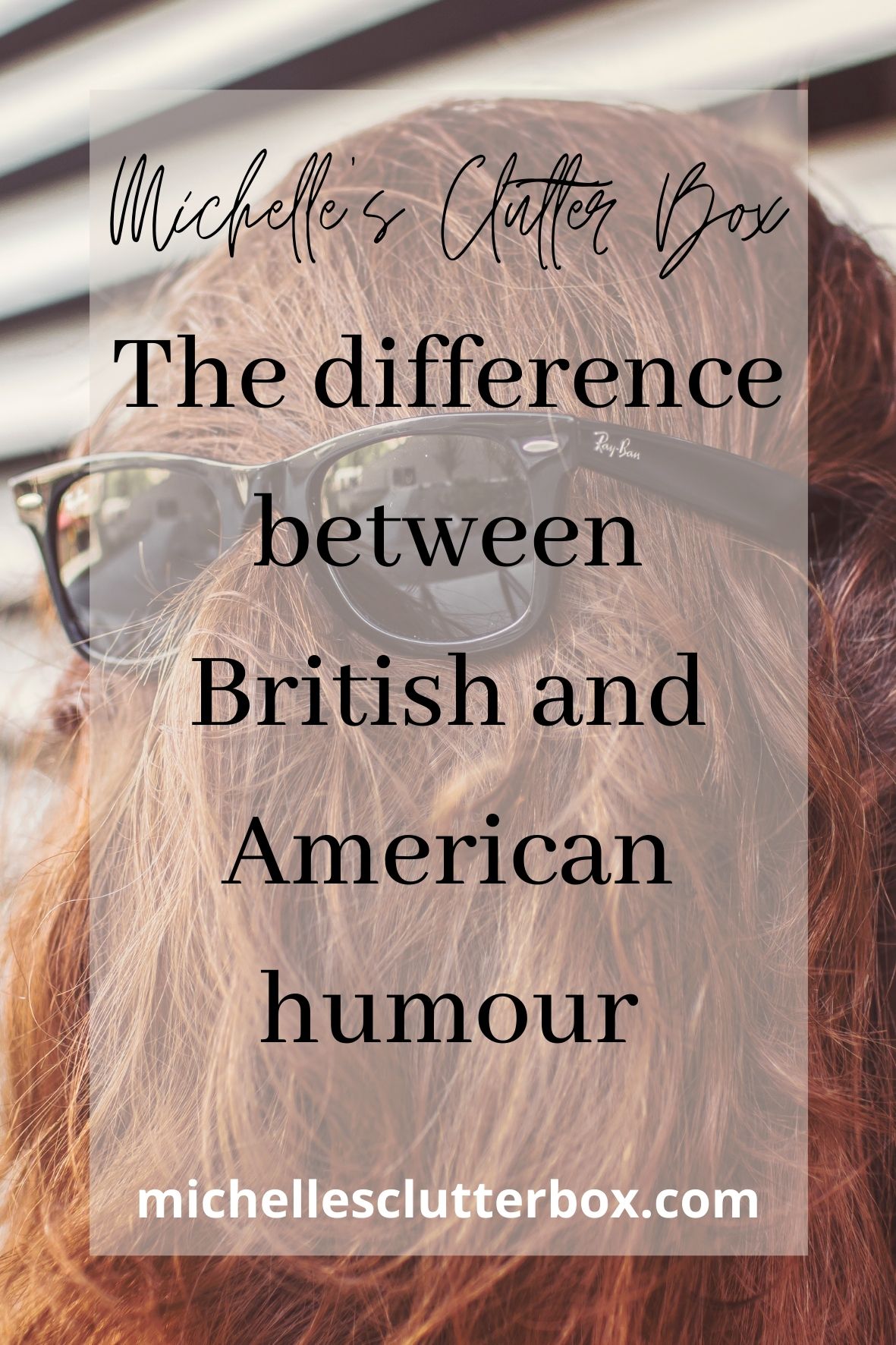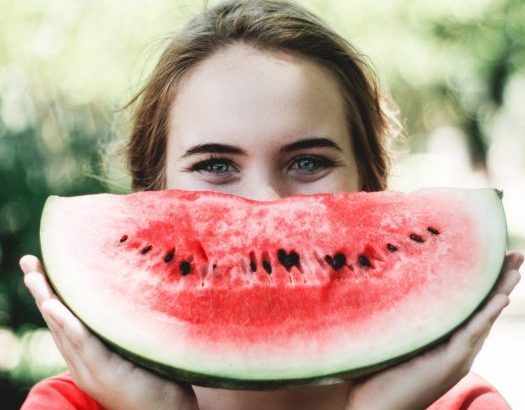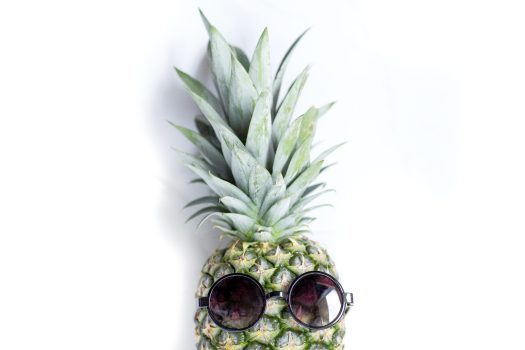The difference between British and American humour

It has been said that Britain and America are two nations that are divided by the same language. I think it is also true of their humour. Their types of humour are quite different, but I can’t say how exactly. Thus, I decided to some research and write a post about the difference between British and American humour.
Eddy Izzard illustrates it
The inspiration for this post came from an Eddy Izzard comedy clip that I watched a few years ago. Enjoy (not the original, but the animation makes it better):
Does he have a point? Also, how does this difference between the two nations relate to humour?
Research: academics and successful comics
I tried to do proper research and use academic articles, but I couldn’t find much on this topic. Most of the articles were about the translation of humour. Also, I want to show what two very successful comic writers and actors, Ricky Gervais and Simon Pegg, said about the issue (I used two interviews as sources).
How it works
Humour as a concept seems to be universal, although its characteristics are not the same for different people.1
As you probably know, to understand humour, you need a certain background knowledge of the topic at hand – be it cultural norms (a major one) politics, the history of the country, celebrities, etc.1,2,3 For example, the stereotypes attached to certain accents in a region, can be hilarious if you understand the reference, but not so much if you don’t get it.3 Individual experiences will also vary according to things such as age, intelligence or education, and personal experiences.1
For most comedy to work, there has to be some kind of incongruity. In other words, you expect one thing but another happens. Thus, you could expect one response and then get another. Or you expect a certain behaviour in a scenario, and another is portrayed. Obviously, to understand the incongruity, you must first be familiar with what the expectations in that situation are.2
The British demeanour
The British people are seen as a serious bunch, who are more cynical and guarded than the Americans.4 They are not optimists like Americans – they don’t believe that anything is possible.5 You’ll also notice that they are much more subtle and sarcastic in their humour because of these traits.6
The British are more in favour of the uncomfortable truths of life, for instance, that some people are just losers.5 To explain, it’s not to say that Brits don’t believe in the wonderful things in life, and love, and so on, but they do believe that it comes at a certain cost.4 It’s not that they don’t want a character to succeed, but they like someone who goes through the ups and downs in life, and struggle to get what they want – it seems like that is what British audiences want and it is reflected in their humour.6
Hidden emotions and restraint
The Brits’ humour is seen as that of a confident and restraint people. In fact, it is seen as crucial to restrain one’s feelings. For them, to show vulnerable emotions and lose control over one’s feelings is seen as broadcasting all your secrets. For the Brits, humour is a way of detaching and not letting one’s vulnerabilities show.2 In other words, the British feel like they have to bury all their emotions under comedy or humour.4 To reiterate, their humour is more subdued and subtle, and therefore can be difficult to understand if you’re not used to it.1
The Brits make fun of people they don’t like, do like, and even themselves in their sneaky subdued ways. Because they make fun of themselves, that also kind of gives them the license to do the same to other people.5 Usually, they would avoid confrontation in conversations, as is their nature, but it is exactly that avoidance that they make fun of in their comedy and humour.1
It is because of this restraint in the British demeanour that irony is so popular in British humour – which we’ll get to a bit later.2

America the great (at everything – apparently)
Because America was always a country with immigrants from all over the world, many cultures have influenced its humour. Although a lot of the first settlers were British, their humour is very different than that of across the pond. There are some defining features of American comedy.2
Firstly, Americans are much more optimistic than the British and are open about their vulnerabilities such as their hopes and fears.5 Americans are much more open about their emotions in general, and this shows in all their entertainment.4
Also, Americans love ambition and success.5 They are also people who are seen as proud and overconfident, and would not easily admit defeat – and this often leads to comedy.2
Irony
It seems like the biggest difference between British and American humour is the use of irony. Here irony is defined as “a character speaking on a subject about which the audience knows more than himself”.1
Irony is much more common in British humour. It is probably because of this that British humour is often seen as more intellectual. Americans, on the other hand, veer away from irony and are much more direct and transparent in their comedy.2
That is not to say that American humour does not use irony at all, but they’ll make the irony obvious by saying something like ‘just kidding’ at the end.1,4 The Brits also use irony more in social contexts where the Americans wouldn’t.5
Other differences
Understatements
As stated, British humour is usually a bit sneaky and subtle. It’s also common for Brits to say the opposite of what they mean, and tend to use understatements. Understatements especially are a common feature in this kind of humour, where the character does not entirely express what they think or feel about a situation, usually to make another look dumb.1
Unhappy campers
The gloominess of Britishness (if that is even a thing) also comes through in their humour. They also often make jokes about scenarios that are supposed to be taken seriously.1 Also, it seems that the Brits want the characters in their stories to be as sad/gloomy as they are. It’s like the Brits expect that the characters will end up miserable if they aren’t already, and if there’s a happy ending, that’s just an extra.5
It seems that there is this dichotomy that in general Americans love success in their comedy, whereas Brits love failure.6
Americans have to like you
With American television, the audience has to like the show as well as the characters – so if they’re mean or wicked, they would not be as popular. In other words, Americans want niceness.5
However, there are differences in comedy subdomains. For example, in American sitcoms, you would often find happy people who are trying their best to be successful. However, Roasts are very popular in America – and they are brutal, nothing optimistic going on there.6
It’s bigger and better in America
As stated earlier, American humour is also a lot more obvious in many ways.6 They tend to the bigger and better in terms of outlandish exaggerations and comparisons to create humour.2 It can be seen as ridiculous and exaggerated. American humour makes much more use of slapstick and physical comedy than British humour.1
For instance, in an American movie, there is always a guy whose crotch area is unprotected and a kid with a bat (stick, utensil, or any other vertical item that can induce pain). Then I think: hmmm, I wonder what is going to happen now? (sarcastic). Of course, the kid hits the guy in the crotch. It’s so predictable.
The verdict
Well, to sum up, American humour is more up in your face and wants a reaction, whereas British humour is sneaky and only elicits a snicker.
It’s kind of weird for me, because I am South African, which is a former British colony, and there are many characteristics of British humour in our humour. However, with the media you have so much exposure to humour from all over the world, they’re starting to kind of blend into each other.4 For instance, that core feature of British pessimism is also starting to creep into American humour.7
What do you think about this post? Let me know – contact details below.
Michelle
P.S. If you’d like to contact me, feel free to comment below, send an email to thatmichelleperson@gmail.com, or follow me on Twitter @M_ClutterBox.
I used these sources:
- Jie, Z. 2016. James Thurber’s Humor Represents Typical American Humor. Sino-US English Teaching, 13(5): 395-400.
- Nikonova, V., Boiko, Y., Savina, Y. 2019. Incongruity-specific British and American Humour from the Perspective of Translation Studies. Studies about languages, 35:89-103.
- Magazzù, G. 2019. Transferring multilingual humour intralingually: the case of “Big Night”. European Journal of Humour Research, 7(1): 38–51.
- https://www.theguardian.com/film/2007/feb/10/comedy.television
- https://time.com/3720218/difference-between-american-british-humour/
- https://www.comedy.co.uk/forums/thread/34753/
- https://news.avclub.com/the-difference-between-british-and-american-comedy-migh-1798249225









